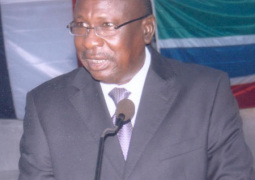As the 2019
novel coronavirus continues its deadly rampage, the World Health Organization
(WHO) is rightly drawing attention to the risks the virus poses to the poorest
and most vulnerable nations — particularly in Africa.
As Nature
went to press, more than 43,000 infections and more than 1,000 deaths had been
confirmed. Soon, thousands of China’s citizens will be returning to their jobs
on the African continent after an extended new-year holiday. If the virus also
reaches Africa, it could spread rapidly and undetected because health systems
in many regions are too fragile and underfunded to cope.
As a result,
the WHO has scrambled to equip 14 countries — including the Democratic Republic
of the Congo, Ethiopia and Nigeria — with diagnostics, expertise and equipment
to detect and contain the virus. The agency has also appealed for US$675
million to assist vulnerable countries — an amount that it estimates will last
only until the end of April.
And yet, as
donors start to provide emergency aid — the Bill & Melinda Gates Foundation
was among the first with a $100-million pledge — it’s hard to avoid the feeling
of déjà vu. Infectious-disease outbreaks are often accompanied by such pledges
to improve disease surveillance, and by promises to provide funds for drug and
vaccine development. What is less forthcoming is sustainable funding for
clinics providing community-level general medicine, and for medical and nursing
education, as well as investments to sustain hospitals with supplies,
electricity and running water.
These are all
steps that would help countries to combat infectious diseases and improve
overall public health — as WHO director-general Tedros Adhanom Ghebreyesus
urged in a statement at the end of last month. Seven of the nations that the
WHO will be helping scarcely have one nurse per 1,000 people, according to the
most recent statistics from the World Bank. And more than 50% of the
continent’s 1.2 billion inhabitants lack access to essential primary care.
To be fair, a
shift in outlook has already begun. In 2016, the World Bank and the Global Fund
to Fight AIDS, Tuberculosis and Malaria committed $24 billion over three to
five years for universal health care in Africa. And over the past year,
Rwanda’s president, Paul Kagame, has been leading an African Union task force
with the explicit aim of achieving measurable universal health coverage in all
of its 55 member states, partly by committing to spending 5% of gross domestic
product on health care. This is an ambitious aim, and it needs to be.
“Governments should surely be willing and able to increase domestic investment
in healthcare,” Kagame said as the project got under way.
A temporary
surge of assistance aimed at infectious-disease surveillance — as is happening
now — might suffice in places where health systems are reasonably robust. But
for the poorest countries with the weakest systems, even the best projects will
struggle once these grants come to an end, as the case of Ebola shows all too
well.
After the
world’s biggest Ebola outbreak ended in 2016, donors, including the US
government and the World Bank, put more than $100 million into initiatives to
strengthen health and disease-surveillance systems in the three countries that
were worst hit — Liberia, Sierra Leone and Guinea.
A Guest
Editorial


